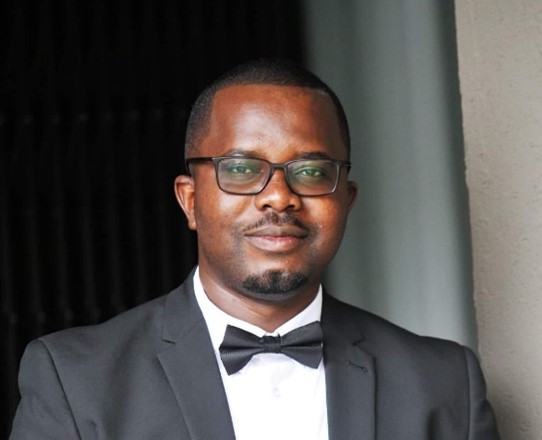Grad Spotlight: Paul Samboko
Paul is a second-year student in the Agricultural, Food, and Resource Economics (AFRE) master’s program.

Paul's research interests span the development-environment nexus in sub-Saharan Africa. His previous work involved capacity building, evidence generation and outreach activities relevant to the Agricultural Sector in Zambia and selected countries in Eastern and Southern Africa. He holds a master’s degree in Agricultural Economics (Environmental and Natural Resources Economics specialization) from the University of Pretoria, and a bachelor’s degree in Agricultural Economics from the University of Zambia. His career goal is to influence policy in developing countries to achieve sustainable agricultural-led development through evidence generation, outreach, and capacity building.
Why did you decide to choose AFRE for your graduate studies?
This was a relatively easy decision for me, given that prior to joining MSU, I crossed paths with AFRE faculty members during my time as an undergraduate student at the University of Zambia, and for the most part, during my time as a Research Associate at the Indaba Agricultural Policy Research Institute (IAPRI). You may know that MSU researchers set up the Food Security Research Projects in Zambia, and this transitioned into IAPRI, so the MSU presence in Zambia has been quite heavy to date. Secondly, AFRE’s impact on the African continent is very visible, and I have always admired this work. In view of the department’s standing among agricultural economics departments across the globe, its footprint in Africa, and my interaction with MSU professors, I felt AFRE suited me best in terms of advancing my career goals. I have no doubt that I will receive the best training an agricultural economist can receive.
What is your favorite thing about the AFRE department?
MSU AFRE feels like a family, so my favorite thing about the department is definitely the people first, and everything else follows after. The friendly and helpful team of professors and students makes the learning fun and less painful. Moreover, the diversity within the department is great for establishing a global network within the profession.
What has been your favorite class in the AFRE major, and why?
I think I have two, namely, AFRE 861 (Agriculture in Economic Development) and AFRE 841 (Analysis of Food System Organization and Performance). AFRE 861 enhanced my theoretical understanding of agriculture’s role in development, while AFRE 841 is particularly interesting, as I can relate to most of what we have discussed in class. My professors in both classes made the classes fun, and learning easy. I feel the incremental knowledge imparted by these two courses is also the highest; I am certainly in a better position than I was when I arrived.
If you could go back in time and give any advice to yourself as a first-year AFRE student, what would it be?
Get to know the resources around you early enough because you will get very busy, and may have to strategize on what to prioritize, or how to approach the pressures that come with the weekly tasks.
What is one thing that you are looking forward to doing once we are able to return to campus?
A catch-up lunch with fellow graduate students in Cook-Seevers Hall
What one invention would you uninvent, and why?
Nothing. Humanity has continuously strived to amass knowledge; some inventions have done more harm than good, but overall, I think we retain a great degree of control over our inventions.
What thoughts instantly make you feel more relaxed?
Family
What is something about yourself that you should brag about, but usually don’t?
I think my academic and professional achievements



 Print
Print Email
Email



